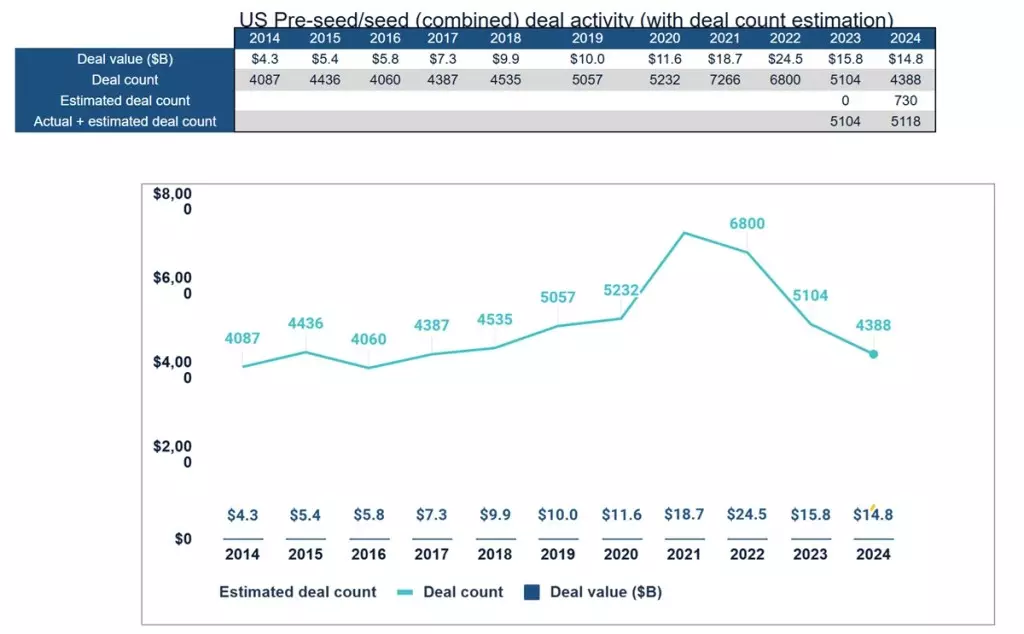The venture capital landscape in the United States is poised for a transformative phase in 2025, particularly regarding technology startups valued at $1 billion or more—commonly referred to as unicorns. This anticipated surge in initial public offerings (IPOs) reflects both a cautious optimism and a series of underlying complexities faced by the market, as indicated by the PitchBook/NVCA Venture Monitor’s fourth-quarter analysis for 2024.
PitchBook employs a sophisticated VC exit predictor, harnessing machine learning to evaluate the likelihood of a startup achieving a successful exit, whether through acquisition, going public, or facing failure. This innovative tool plays a critical role in rating VC-backed companies and offers insight into the current investment climate. Companies are scored based on their probability of moving towards an exit strategy, generating essential data for investors and entrepreneurs alike.
While this provides valuable metrics for gauging startup health and potential for success, it also highlights systemic issues within the venture capital ecosystem. The analytical approach taken by PitchBook has introduced a proprietary extrapolation methodology aimed at uncovering undisclosed merger and acquisition (M&A) transactions, contributing to a more nuanced understanding of exit value across the VC market.
Despite observing a rebound in funding activity during 2024—with higher investment levels compared to mid-2022—industry experts convey a sense of tempered hopefulness as we approach 2025. Nizar Tarhuni, EVP of Research and Market Intelligence at PitchBook, voiced concerns about underlying challenges in the market. He identified the disparity between buyer and seller valuations as a significant obstacle, primarily rooted in previous overvalued funding rounds. The landscape is mired in uncertainty, further compounded by regulatory hurdles that stifle deal activity.
However, amidst these challenges, the sentiment amongst venture capitalists remains one of cautious optimism. Bobby Franklin, CEO of NVCA, pointed out that changes in leadership at key regulatory bodies could improve liquidity for portfolio companies. Additionally, reforms in policy could potentially reduce the burdens placed on firms, setting the stage for a more vibrant VC environment.
An important element influencing the venture capital space is the political climate in Washington, D.C. Enhanced engagement by VCs with government officials may lead to an increased recognition of the role that venture-backed companies play in economic growth. Upcoming legislative changes, including a notable tax bill making its way through Congress, could support innovation and rejuvenate the R&D tax credit, ultimately benefiting the entire startup ecosystem.
As government dynamics evolve, investors are looking for signs that will attract more capital into the market. The anticipation surrounding these changes may enable startups to rethink their approaches to growth and valuation, fostering a more conducive environment for IPOs and acquisitions.
According to PitchBook, several unicorns show a high probability of going public in 2025. Anduril, initiated by Oculus founder Palmer Luckey, boasts an impressive 97% estimate for a public offering, indicating significant confidence in its growth trajectory. Mythical Games, another notable contender rooted in gaming, shares the same optimism with a predicted 97% chance of entering the public marketplace.
Other companies in the fray include Ayar Labs, Carbon, and StockX, each exhibiting potential for successful openings in the market. The range of sectors represented—from aerospace and defense to Web3 gaming and food technology—exemplifies the diversification within the unicorn space, highlighting the innovative forces shaping the economy.
As the venture capital landscape gears up for 2025, the interplay of optimism and caution will be instrumental in determining which unicorns will successfully navigate the IPO process. While the tools and data available provide an insightful glimpse into the potential for success, the myriad challenges intrinsic to the VC ecosystem cannot be overlooked. The coming year will be critical for understanding how shifts in regulation, economic practices, and company valuations will ultimately shape the future of entrepreneurship in the U.S.


Leave a Reply